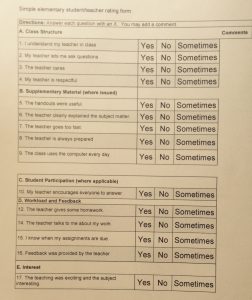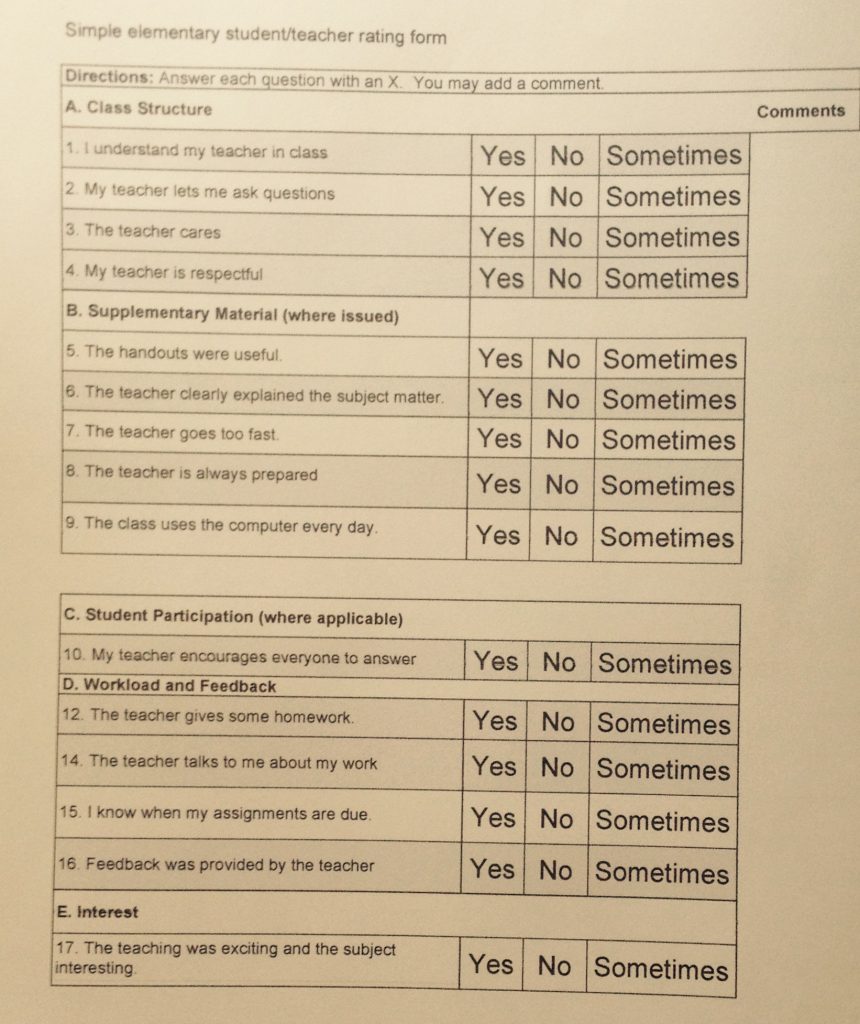Schools are now beginning to use student ratings to determine the effectiveness of teachers. Schools in Georgia, Tennessee, and Florida (to name some) use a student rating system as data to improve education.
Many colleges utilize student ratings but it is only beginning to move into the elementary and high schools. Two websites that let students post a teacher rating are, ratemyteachers.com and ratemyprofessors.com.
Ratings systems vary from school to school depending on the desired data. Some simply use style and use of technology to rate a teacher. Others use questions based on teacher clarity, helpfulness, popularity, and easiness. Schools even use teachers rating themselves according to what they think students will say about their teaching. The goal of teachers rating themselves through the eyes of each student is to compare and identify any gaps between the teacher’s point of view and the student’s perspective.
It is a fact that when teachers have a positive relationship with their students, academic performance rises. The student/teacher relationship is very important because of the amount of time spent together. Data from ratings must show a supportive relationship.
As for the evaluation of teachers, student ratings add a valuable component. They do however have negative feedback when students list a class as ‘good’ or compare teachers. Students tend to be fickle. They love you one day and hate you the next. But all in all, many teachers agree that it is useful information. Teachers need to be evaluated on multiple measures so the educational system can improve.
In the elementary, students rate teachers on a simple scale using questions that require a ‘yes’ or ‘no’ answer. High school students are able to use a more complex scale. Unlike administrators or other teachers, student observations from the elementary and high school observe and interact with teachers on a daily basis making for valuable input. 
Questions designed for student answers should be developed by a committee of teachers, parents, students, and administrators. The questions should be constructed to identify positive teacher qualities as well as destructive qualities through the identification of strengths and weaknesses.
Teachers hold an important and influential position. Good teachers have a positive effect on the children and a bad teacher can set back a student’s education three years. Students need learning opportunities on how to provide constructive criticism. Student ratings and assessments won’t fix all the problems in education but it can’t hurt. Tests and written work give teachers a student’s level of understanding. A questionnaire will allow students a way to provide feedback that is informal and effective to their education. Giving teachers an insight into the minds of students is of great benefit toward a student’s educational needs. Are lessons coming across to each student? Are students sufficiently motivated toward learning? The quality of teaching and learning can only be improved. This is a concept that has much promise. Teacher ratings should be used solely for positive growth of teachers and an understanding of how teachers are seen through the eyes of a student. They should not be part of an administrative yearly evaluation.



